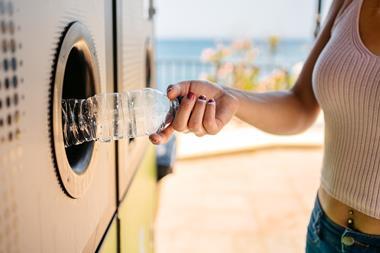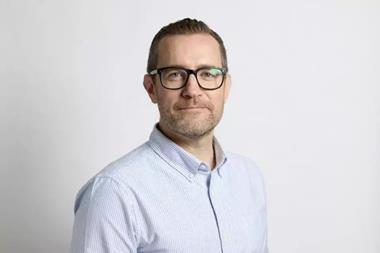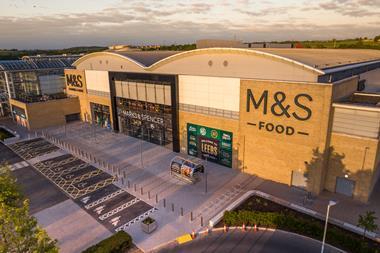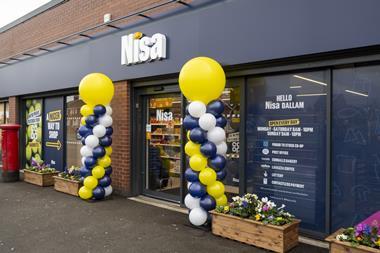>>on yer bike! says Graham Neale, general manager, GSK Nutritional Healthcare
If only getting the nation active was as easy as riding a bike. We know the consequences of our increasingly sedentary lifestyles, but do they encourage us to exercise?
Modern life has presented us with a convenience culture whereby our travelling, work and social life don’t so much as raise our pulse.
Today (July 16) 2,500 people in Manchester will be bucking that trend and taking part in a family cycling festival with a difference. Go-Ride-In, so called because it marries cycling challenges with an outdoor movie screening, is an event specifically designed to test the theory that if you make exercise cool, fun and aspirational, it can actually increase people’s propensity to do it.
This event should provide some answers as to whether the marketing muscle of the private sector can be deployed to help solve some of the country’s pressing public health problems.
The crucial question is: can some of the skills that the food and drink industry employs to shift product be used to shift people from the comfort of their couches?
Go-Ride-In comes as a result of in-depth research into how we help people enjoy active lives. As a healthcare company, GSK’s mission is to improve the quality of human life by enabling people to do more, feel better and live longer.
On this basis, last year we commissioned think-tank Demos to write a research report that looked into the barriers to activity within families - Let’s Get Physical.
The report identified five different family types, who would benefit from a tailored approach to exercise promotion.
For instance, many of us will empathise with the taxi driver families who are taken up with ferrying their children to leisure pursuits to the detriment of their own participation in exercise.
The report recommended that promotion of exercise should move from frightening people into good habits to making exercise aspirational for children and their families. Let’s Get Physical demonstrated that traditional public health information campaigns cannot in themselves create a lasting change in families’ participation in physical activity. People object to being scared into taking care of their health.
The report offered an alternative approach. It described how using powerful, relevant cues from fashion, music and other
cultural phenomena could be more successful in motivating action. These are the kinds of associations that could turn sporting activities from geeky pursuits into cool pastimes that kids can’t wait to take part in.
We realised, however, that insight alone wasn’t going to help anybody. So today GSK is putting the theory outlined in Let’s Get Physical into practice by staging Go-Ride-In.
The event, at the Sportcity arena, aims to reignite the excitement that people felt when the stabilisers first came off their bikes. The family cycling festival will see parents and kids enjoying an outdoor movie, as well as getting the chance to take part in BMX and BikeTrial workshops and talent tests.
Cycling is the perfect way to experiment - it’s accessible and most of us own a bike. Hopefully we will see families in Manchester getting their bikes out of the shed more often as a result of taking part in the event.
We will be measuring our success, but it will take a few months to see if there has been a genuine behavioural change.
Last year, Tessa Jowell, Secretary of State for Culture, Media and Sport, asked the food and drink industry to help solve the pressing public health ‘time bomb’. She challenged manufacturers to make a contribution to the debate. It was clear that there was a role for a collaborative approach from the government and business.
If today’s Go-Ride-In event does indeed prove successful, then perhaps it will act as a possible blueprint for this joint approach in the future.
If only getting the nation active was as easy as riding a bike. We know the consequences of our increasingly sedentary lifestyles, but do they encourage us to exercise?
Modern life has presented us with a convenience culture whereby our travelling, work and social life don’t so much as raise our pulse.
Today (July 16) 2,500 people in Manchester will be bucking that trend and taking part in a family cycling festival with a difference. Go-Ride-In, so called because it marries cycling challenges with an outdoor movie screening, is an event specifically designed to test the theory that if you make exercise cool, fun and aspirational, it can actually increase people’s propensity to do it.
This event should provide some answers as to whether the marketing muscle of the private sector can be deployed to help solve some of the country’s pressing public health problems.
The crucial question is: can some of the skills that the food and drink industry employs to shift product be used to shift people from the comfort of their couches?
Go-Ride-In comes as a result of in-depth research into how we help people enjoy active lives. As a healthcare company, GSK’s mission is to improve the quality of human life by enabling people to do more, feel better and live longer.
On this basis, last year we commissioned think-tank Demos to write a research report that looked into the barriers to activity within families - Let’s Get Physical.
The report identified five different family types, who would benefit from a tailored approach to exercise promotion.
For instance, many of us will empathise with the taxi driver families who are taken up with ferrying their children to leisure pursuits to the detriment of their own participation in exercise.
The report recommended that promotion of exercise should move from frightening people into good habits to making exercise aspirational for children and their families. Let’s Get Physical demonstrated that traditional public health information campaigns cannot in themselves create a lasting change in families’ participation in physical activity. People object to being scared into taking care of their health.
The report offered an alternative approach. It described how using powerful, relevant cues from fashion, music and other
cultural phenomena could be more successful in motivating action. These are the kinds of associations that could turn sporting activities from geeky pursuits into cool pastimes that kids can’t wait to take part in.
We realised, however, that insight alone wasn’t going to help anybody. So today GSK is putting the theory outlined in Let’s Get Physical into practice by staging Go-Ride-In.
The event, at the Sportcity arena, aims to reignite the excitement that people felt when the stabilisers first came off their bikes. The family cycling festival will see parents and kids enjoying an outdoor movie, as well as getting the chance to take part in BMX and BikeTrial workshops and talent tests.
Cycling is the perfect way to experiment - it’s accessible and most of us own a bike. Hopefully we will see families in Manchester getting their bikes out of the shed more often as a result of taking part in the event.
We will be measuring our success, but it will take a few months to see if there has been a genuine behavioural change.
Last year, Tessa Jowell, Secretary of State for Culture, Media and Sport, asked the food and drink industry to help solve the pressing public health ‘time bomb’. She challenged manufacturers to make a contribution to the debate. It was clear that there was a role for a collaborative approach from the government and business.
If today’s Go-Ride-In event does indeed prove successful, then perhaps it will act as a possible blueprint for this joint approach in the future.














No comments yet